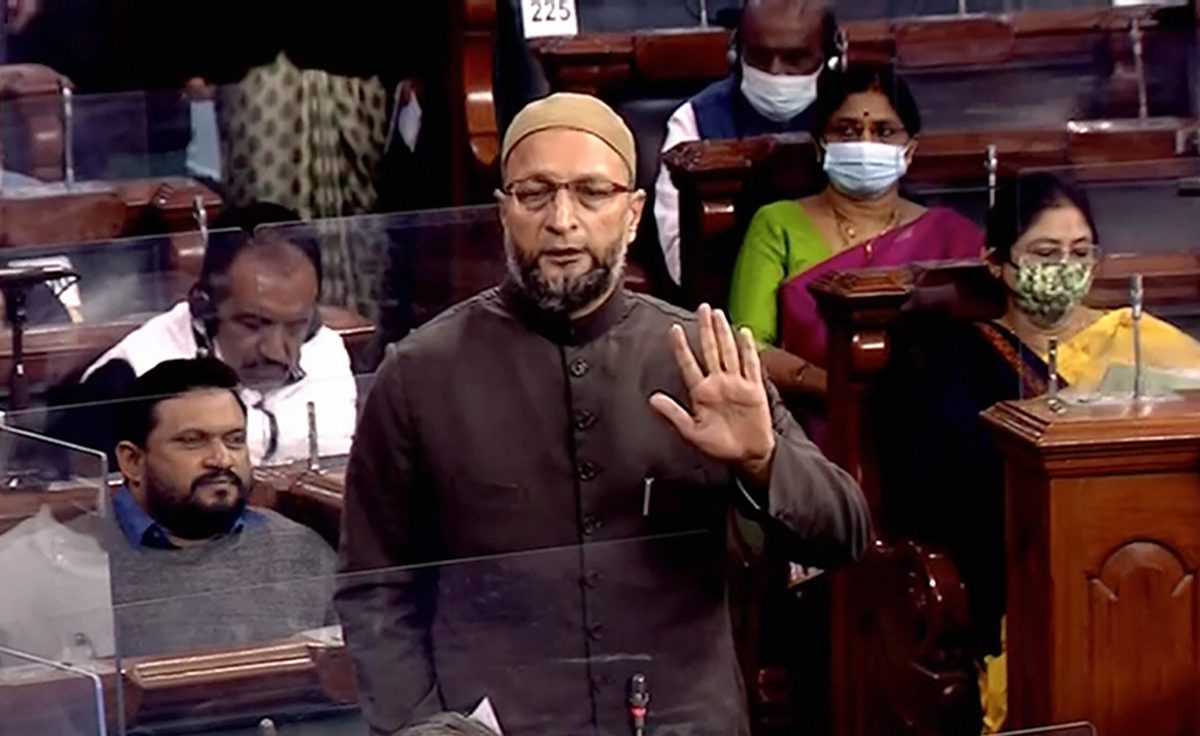
Hyderabad: Following a split verdict by the Supreme Court on the Karnataka hijab ban case, All India Majlis-e-Ittehadul Muslimeen (AIMIM) chief Asaduddin Owaisi said the decision of the Karnataka High Court was “bad in terms of law and content” and that the Quranic commentaries and translations were “misused”.
Slamming the ruling BJP in the State for making the hijab ban an issue, the AIMIM chief further said that girls of Karnataka are wearing hijab because Allah has asked them to do so in Quran.
Speaking to ANI, Owaisi said, “According to me the decision of the High Court was bad in law and bad in terms of its content, it misused Quranic commentaries and translations. Girls of Karnataka are wearing hijab because Allah has asked them to do so in Quran. BJP made it an issue out of it.”
He further said that he was expecting a unanimous judgement in favour of girls.
“I was expecting a unanimous judgement in favour of girls going to school in Karnataka wearing hijab. Justice Sudhanshu Dhulia said that wearing a hijab is ultimately a matter of choice. The judgment by one of the judges from SC was in favour of hijab,” he added.
Meanwhile, Advocate Barun Sinha representing the Hindu Sena said that in view of a split verdict by the Supreme Court, the order of the Karnataka High Court will remain applicable in the interim time.
A two-judge bench of Justices Hemant Gupta and Sudhanshu Dhulia pronounced the judgement today.
While Justice Hemant Gupta stated that was a “divergence of opinion” as he dismissed the bunch of petitions against the March 15 Karnataka High Court order on the hijab matter, Justice Sudhanshu Dhulia allowed the appeals and set aside the HC verdict.
“It’s a matter of choice, nothing more nothing less,” Justice Dhulia said while pronouncing the order.
Justice Gupta said, “There is a divergence of opinion. In my order, I have framed 11 questions. First is whether the appeal should be referred to the Constitution Bench.”
Advocate Ezaz Maqbool, representing the petitioner said that the matter will be placed before the Chief Justice of India and he will decide whether a new bench will hear the matter or the matter gets referred to a larger bench.
The apex court had earlier reserved its order on various petitions challenging the Karnataka High Court upholding the ban on hijab in educational institutes.
The arguments in the matter went on for 10 days in which 21 lawyers from the petitioners’ side and Solicitor General Tushar Mehta, Additional Solicitor General KM Nataraj, Karnataka Advocate General Prabhuling Navadgi argued for the respondents.
The court was hearing various pleas challenging the Karnataka HC’s judgement upholding the Karnataka Government’s decision to direct educational institutes to prescribe uniforms in educational institutes.
One of the appeals in the top court had alleged “step-motherly behaviour of government authorities which has prevented students from practising their faith and resulted in an unwanted law and order situation”.
The appeal said the High Court in its impugned order “had vehemently failed to apply its mind and was unable to understand the gravity of the situation as well as the core aspect of the Essential Religious Practices enshrined under Article 25 of the Constitution of India”.
A bench of Karnataka High Court comprising Chief Justice Ritu Raj Awasthi, Justice Krishna S Dixit, and Justice JM Khazi had earlier held that the prescription of uniform is a reasonable restriction that students could not object to and dismissed various petitions challenging a ban on hijab in education institutions saying they are without merit.
The hijab row erupted in January this year when the Government PU College in Udupi allegedly barred six girls wearing the hijab from entering. Following this, the girls sat in protest outside the college over being denied entry.
After this, boys of several colleges in Udupi started attending classes wearing saffron scarves. This protest spread to other parts of the state as well leading to protests and agitations in several places in Karnataka.
As a result, the Karnataka government said that all students must adhere to the uniform and banned both hijab and saffron scarves till an expert committee decided on the issue.
On February 5, the pre-University education board released a circular stating that the students could only wear the uniform approved by the school administration and no other religious attire would be allowed in colleges.
(Except for the headline, this story has not been edited by Siasat staff and is published from a syndicated feed.)



